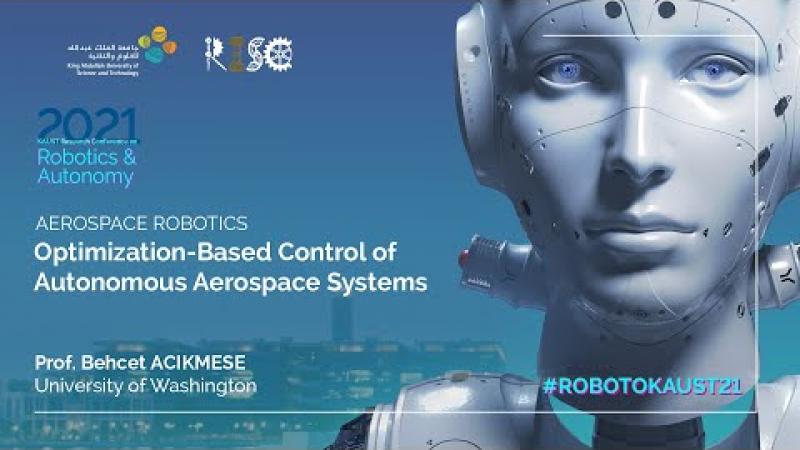Optimization Based Control - An Aerospace Perspective
Abstract
Many future aerospace engineering applications will require dramatic increases in our existing autonomous control capabilities. These include robotic sample return missions to planets, comets, and asteroids, formation flying spacecraft, swarms of autonomous spacecraft, unmanned aerial, ground, and underwater vehicles, and autonomous commercial robotic applications. A key control challenge for many autonomous systems is to achieve the performance goals safely with minimal resource use in the presence of mission constraints and uncertainties. In principle, these problems can be formulated and solved as optimal control problems. The challenge is solving them reliably in real-time while assuring: i) full utilization of the performance envelope for the autonomous system; ii) systematic verification of the control algorithms. Our approach to solving these challenging control problems is optimization-based control where we formulate these control problems as optimization problems and then to exploit convex optimization theory and algorithms for their robust and numerically efficient solutions. This seminar introduces several real-world spacecraft applications, where optimization-based control has provided dramatic performance improvements over the heritage technologies. An important application is the fuel optimal planetary soft landing, whose complete solution has been an open problem since the Apollo Moon landings of the 1960s. The underlying trajectory planning problems for planetary landing problems are nonconvex, due to complex state, control, and coupled state and control constraints. Hence obtaining solutions in real-time is a major challenge. Recent applications of reusable rockets have increased the importance of planetary soft landing and the ability to compute, in real time, numerical solution of the underlying optimal control problems have been shown to be an enabling technology. There are also other applications, which can benefit from this real-time optimal control, including: autonomous aerial drones, spacecraft proximity operations for rendezvous, docking and servicing, autonomous multi-vehicle systems, proximity operation near asteroids and comets to name few. This talk will point out some of the key control problems that real-time optimal control could address in these applications as well as the challenges we face as researchers in transitioning this enabling technology into practice.
Biography
Behcet Acikmese is a professor in the William E. Boeing Department of Aeronautics and Astronautics and an adjunct faculty member in the Department of Electrical Engineering at the University of Washington, Seattle. He received his Ph.D. in Aerospace Engineering from Purdue University. He was a senior technologist at JPL and a lecturer at Caltech. At JPL, he developed control algorithms for planetary landing, spacecraft formation flying, and asteroid and comet sample return missions. He developed the ``flyaway" control algorithms used successfully in NASA's Mars Science Laboratory (MSL) and Mars 2020 missions during the landings of Curiosity and Perseverance rovers on Mars. Dr. Acikmese invented a novel real-time convex optimization-based planetary landing guidance algorithm (G-FOLD), which is the first demonstration of a real-time optimization algorithm on a reusable rocket. He is a recipient of the NSF CAREER Award, IEEE Technical Excellence in Aerospace Controls, numerous NASA Achievement awards for his contributions to NASA missions and technology development. He is an associate editor of IEEE Control System Magazine and AIAA Journal of Guidance, Control, and Dynamics. He is a fellow of IEEE and an associate fellow of AIAA.
